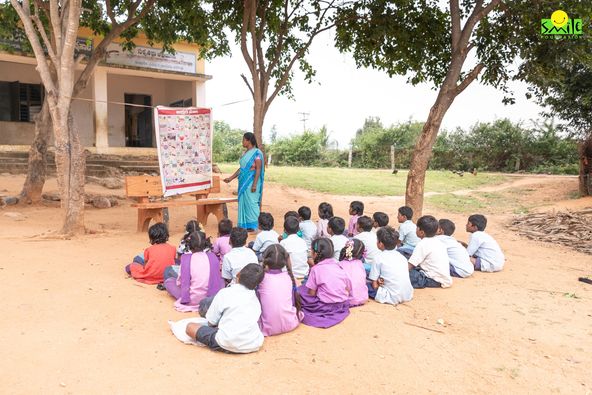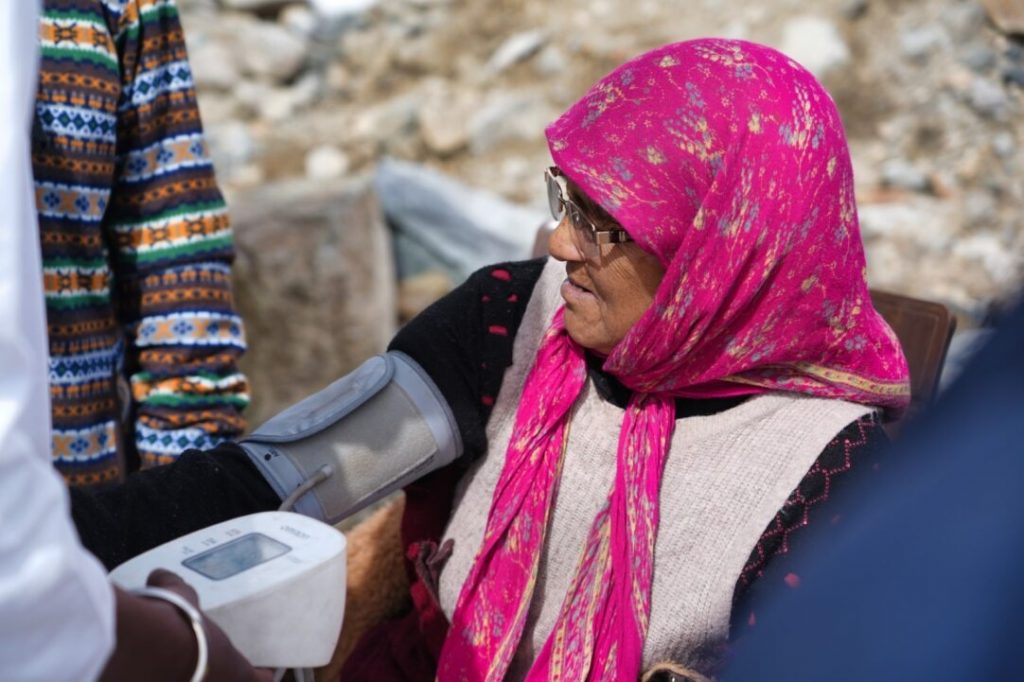Students were questioned about their professional motivations during the recent St. Gallen Symposium, a global leadership conference. Nearly 50% of tomorrow’s leaders said that being able to do work that improved society was the most significant criterion. These numbers were opposed to just 14% who said they were driven by income levels. These results demonstrate how aware the new-age students are and reveal their interest in using management techniques to change society.
Given the enormous crises the world experiences every decade or so, “There is nothing so stable as change” is one of the most fitting quotations to describe the international development industry.
In the last decade, the development sector has emerged as a promising and sought-after career choice with a growing emphasis on social development, corporate social responsibility, and innovative approaches to problem-solving.
Professionals are increasingly drawn to the development sector. The steady walk towards the social sector becoming a resonating point for all is turning into a reality now. The growth of education and skills across industries is partly responsible for the development sector becoming a top career choice.
Why should you work in the Development Sector?
- Making a Positive Impact: Working in the social sector allows you to contribute to meaningful causes and make a tangible difference in people’s lives. You have the opportunity to address social challenges, promote social justice, and work towards an equitable and inclusive society. Every time you listen to a success story and realise that you were a changemaker in the story, you will feel like a better individual.
- Global and Local Impact: The social sector allows you to engage with local communities and contribute to global agendas such as the United Nations Sustainable Development Goals (SDGs). Your work can have both immediate and long-term impacts, locally and internationally.
- Innovation and Creativity: The social sector encourages innovation and creative problem-solving. It often requires thinking outside the box, developing new approaches, and leveraging technology to address complex social challenges. This environment allows for continuous learning and innovation.
- Part of a Global Movement: Working in the social sector means being part of a global movement for positive change. You can join a community of like-minded individuals and organizations who are committed to creating a better world, collectively working towards a common goal.
- Skill Development: A career in the social sector provides ample opportunities for professional and personal growth. You can develop and refine various skills, including project management, research and analysis, communication, advocacy, leadership, and cross-cultural understanding.
Must-Have Skills for the Development Sector
To excel in development sector jobs, certain skills are highly valued. These include:
- Analytical and Research Skills: The ability to analyze complex problems, gather and interpret data, and conduct evidence-based research is crucial for understanding social issues and designing effective interventions.
- Communication and Interpersonal Skills: Strong communication skills, both written and verbal, are essential for collaborating with diverse stakeholders, conveying ideas, advocating for change, and building partnerships within and beyond the sector.
- Project Management and Organizational Skills: The development sector requires professionals who can effectively plan, manage resources, coordinate teams, monitor progress, and ensure timely implementation of projects.
- Cultural Competence and Sensitivity: Working in the development sector often involves engaging with diverse communities and cultures. Cultural competence, empathy, and sensitivity to social, economic, and political contexts are vital for building trust and fostering positive relationships.
- Adaptability and Problem-Solving Abilities: The development sector operates in dynamic environments, and professionals must be adaptable and resilient. Individuals should be capable of finding innovative solutions to address emerging challenges.
How to Get Into the Social Sector
- Education and Relevant Qualifications: Pursuing a degree in social sciences, public policy, international development, economics, environmental studies, or a related field can provide a solid foundation for a career in the development sector. Consider specialized advanced programmes or certifications that focus on development studies or social impact.
- Gain Practical Experience: Internships, volunteer work, or entry-level positions in development organizations can provide valuable practical experience and insights into the sector. Seek opportunities to work on projects related to community development, research, or policy analysis.
- Networking and Professional Development: Attend conferences, seminars, and workshops related to development issues. Join professional networks and associations to connect with industry experts and stay updated on the latest trends and job opportunities.
Careers in the Development Sector
One of the most appealing aspects of development sector jobs is the opportunity to contribute to positive social change. Professionals in this field work towards addressing societal challenges and improving the lives of marginalized communities. They engage in activities such as designing and implementing development programs, conducting research to inform policy decisions, promoting social justice, and advocating for human rights. The social impact of working in the development sector is both rewarding and fulfilling.
India Today in one of its reports from 2019 said, “There is no other sector (corporate or otherwise) that can offer this range and complexity of job profiles which can cater to for a varied range of professionals.”
Development sector jobs provide the chance to become a part of a greater movement aimed at enhancing the quality of life for people and communities. Join us on this transformative journey of changing lives and bringing smiles to the faces of the most needful.










